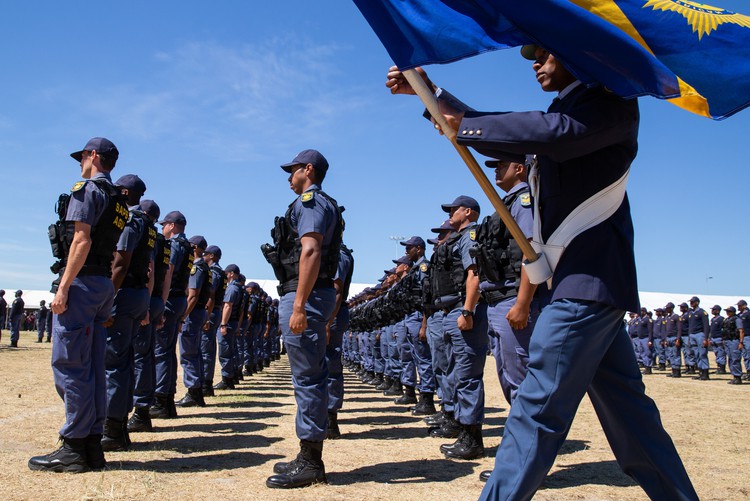Police are making arbitrary arrests at protests
Spurious charges are time-consuming and costly, and undermine the right to protest
The Centre for Applied Legal Studies (CALS) has been representing people, mostly from poor backgrounds, who were arrested during a protest at Kliptown Square before the last local elections. The court has recently ruled on some of these cases.
Three of our clients faced charges of public violence. But they were not even involved in the protest. They were targeted by police when the crowd dispersed.
According to our clients, they just happened to be at the wrong place at the wrong time. This unfortunately has put them through a gruelling three years long trial leading up to last month’s verdict.
All three men were arrested outside and/or within the yard of one of the accused. One had been shot in the leg with a rubber bullet by an officer of the Johannesburg Metro Police Department (JMPD).
Their version of events is that there were all going about their own business that morning. One, for example, was travelling to work. Although they were aware of the protest, they maintain that they were not part of the crowd.
Despite the lack of involvement in the protest and representations made to the Director of Public Prosecutors pleading that charges be withdrawn, the prosecution would hear none of this and proceeded.
But there was no case to prosecute from the onset: the state’s evidence was embarrassingly weak. The JMPD officers gave contradicting versions of events from the written statements to oral evidence when they were in the witness box. For example, two officers informed the court individually that they arrested the same person, under different circumstances. When questioned about this, they merely offered bare denials and each maintained that their version was correct.
Our clients were acquitted of all charges last month by the Lenasia Magistrates Court.
Although there was a sense of relief at the court’s verdict, all three accused complained of the amount of time which the trial has taken, the disturbance in their lives and the impact the trial has had on their families. Even though all three had been released on bail, attending court after numerous postponements has not only been a costly exercise — they have had to travel to and from court — but has also affected their attendance at work and one accused’s attendance at school.
The amount of resources that have been spent on this case alone is astounding and unnecessary.
The magistrate noted while delivering his judgment that public violence is a serious offence but due to there being a lack of credible evidence according to standards prescribed by law, the accused had to be acquitted.
We at CALS argue that the lack of credible evidence against the accused was in fact obvious from the beginning and brought before the attention of the court. Unfortunately, because our representations were not considered, a costly prosecution proceeded.
Another case with a different set of accused is still to be decided. These accused were also arrested during a protest ahead of local government elections in Lenasia in 2016. It has been clear throughout the duration of the trial that the state’s evidence is once again not credible. Similarly, in this case representations were presented that lack credibility.
The police and prosecutors could be using these resources to prosecute more serious crimes.
When it is clear that there are no prospects of success in a case, and that if prosecution were to proceed it would amount to fruitless and wasteful expenditure by the state, such cases should not proceed. The right to protest is protected by law and the Constitution and it should not by any means be compromised and suppressed by baseless criminalisation and prosecution.
Support independent journalism
Donate using Payfast

Don't miss out on the latest news
We respect your privacy, and promise we won't spam you.
Next: Informal traders in PE want municipality to build stalls and toilets
Previous: Residents want City to speed up housing plans in Strand
© 2019 GroundUp.
This article is licensed under a Creative Commons Attribution-NoDerivatives 4.0 International License.
You may republish this article, so long as you credit the authors and GroundUp, and do not change the text. Please include a link back to the original article.

